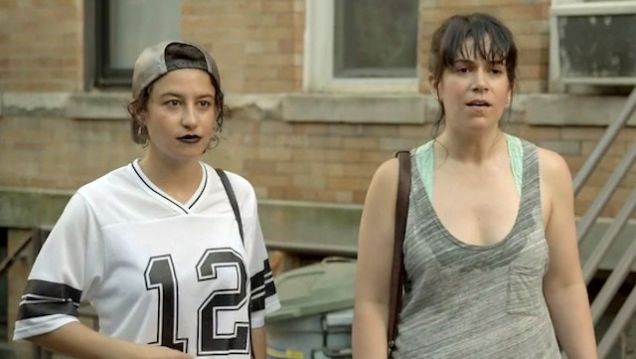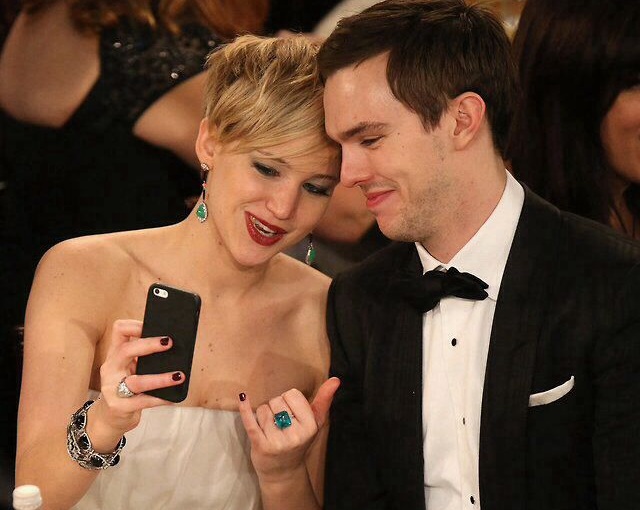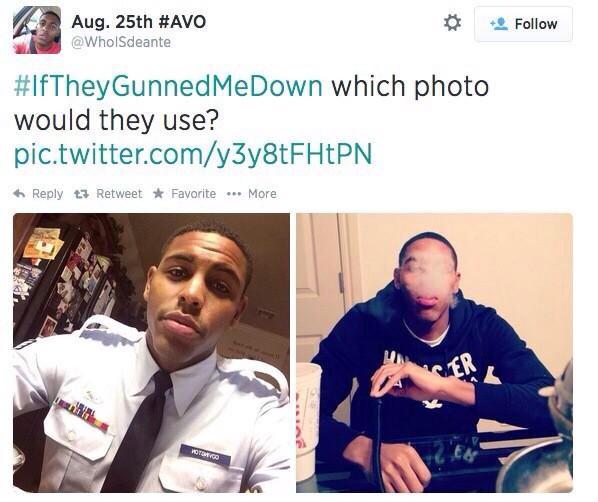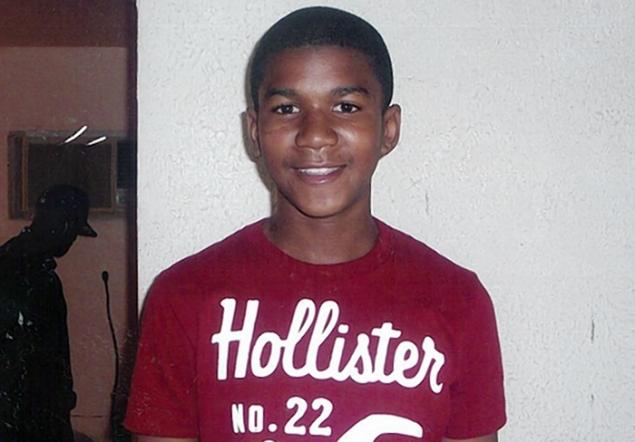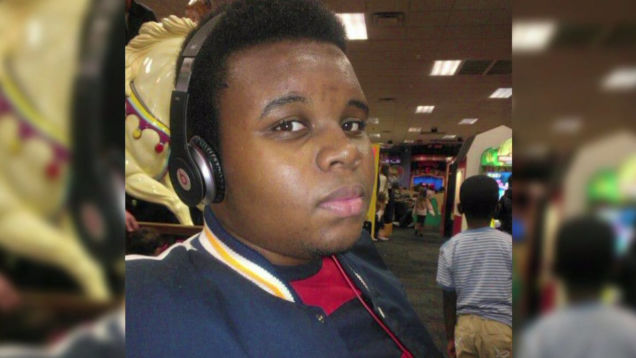Outrage is the new black.
It’s been only a short four months since Slate’s 2014 recap, calling it the Year of Outrage. People don’t easily change behaviors, and we have yet another example of social media users rallying behind a campaign of anger. The victim du jour is Trevor Noah, who was announced to take over The Daily Show with Jon Stewart. It didn’t take long for Twitter users to dig through his history and find some “antisemitic” and fat jokes that he’s made. A whole list of them is available at Buzzfeed.

I’m not going to defend the jokes themselves (because they’re not particularly funny), but I do think it’s unfair to cherrypick through Noah’s Twitter history to manufacture outrage. The most “offensive” Tweets cited are from 2009 and 2010. At the time of this writing, Noah has close to 9,000 posts, which means people went out of their way to locate these examples. Five or six years is archaic by social media standards, and comedians change their sets and their comedy style/jokes based on topicality and audience. The more recent “antisemitic” examples cited in the Buzzfeed article are barely offensive. One is about how Jewish girls are not easy to bed, and the other is about the stereotype that Jewish businessmen are wealthy. I’ve definitely Tweeted things way more offensive than that. Humans have a knack for pattern recognition, sometimes to a fault.
I understand that people are concerned that the content of The Daily Show would be affected by Noah’s “bias” against Jews. But first, you need to prove that he actually has a bias. If you can comb through 9,000 Tweets and find that Noah has made more Jewish jokes than he does against other groups, then by all means, call him a racist or an antisemite. But I’m sure none of these angry Twitter users are doing that level of analysis. It’s much easier to just be blindly offended.
In Chris Rock’s Vulture interview, he spoke about self-censorship and how it’s bad for comedy. He cites Dave Chapelle banning cell phones from live performances, and the interviewer mentions that Patton Oswalt is critical of how Tweets have gotten comedians in trouble. Whether or not it’s the correct platform, comedians test out jokes publicly on Twitter. That’s just the reality of it. Six years ago, Noah was a 25-year-old trying to break into the comedy scene by making jokes in poor taste on Twitter. Dog bites man. Big deal.
The Shame Game
I recently listened to an interview with Jon Ronson, the writer of So You’ve Been Publicly Shamed. In it, he talks about how the advent of social media has caused us to lose sympathy for other human beings in the digital space. Someone’s life or career can be destroyed with a single joke Tweet. Says Ronson:
That what we do on Twitter is we surround ourselves by like-minded people. So, it’s like it’s a constant approval going on. You know, we say “This person is a monster,” everybody around us congratulates us for saying that, and it’s a great feeling to be told that you’re right. So, there’s no incentive to change your mind. If 100,000 people are tearing apart Justine Sacco for her ill-advised AIDS joke, then there’s absolutely no incentive to say: “I’m not sure that the tearing apart of this woman is justified.” Because everybody else on your timeline is tearing them apart, and it’s much safer and it’s much more comfortable to join in with the throng.
Sure, Justine Sacco worked in PR so she shouldn’t have Tweeted that AIDS joke. And of course, the people threatening Curt Schilling’s daughter deserved to be publicly shamed. But other than the people who worked for the MLB, did any of them deserve to lose their jobs? I don’t have an answer for that, but it’s a slippery slope. Is a simple “these Tweets are my own and do not reflect the views of my employer” caveat enough anymore? It doesn’t seem like it. On the other side of that coin, those people certainly shouldn’t be making sexually assault jokes against Curt Schilling’s daughter (or anyone’s daughter for that matter). Self-censorship has its merits, but particularly for those of us trying to be professional. Or those of us who care about our reputations.
This all relates back to the echo chamber effect, which states that we as media consumers self-select the information we’re privy to. It becomes a feedback loop, where a user chooses to receive a certain type of information, and their thoughts are reinforced because the people they follow are of a similar mind. Says Eli Pariser, author of The Filter Bubble:
One of the underlying dynamics here is that a lot of what this personalization trend is about is making the Web a more passive experience, delivering information to you, rather than you having to seek it out.
[…]
What these companies are trying to do is make it easier and easier just to sit back and have the information passively come to you. And it would be sad if it went in that direction because when you do get yourself on the hunt for information that’s exciting and interesting and different, you learn a lot.
This type of feedback loop becomes dangerous, as reddit knows all too well. People gather their pitchforks, and there’s really nobody around to tell them to slow down and think things through. Ironically, The Daily Show has always been one of the more level-headed voices in the media. This type of manufactured outrage is something that Stewart would lampoon on his show.
I’ll end with this quote from comedian Stephen Fry:
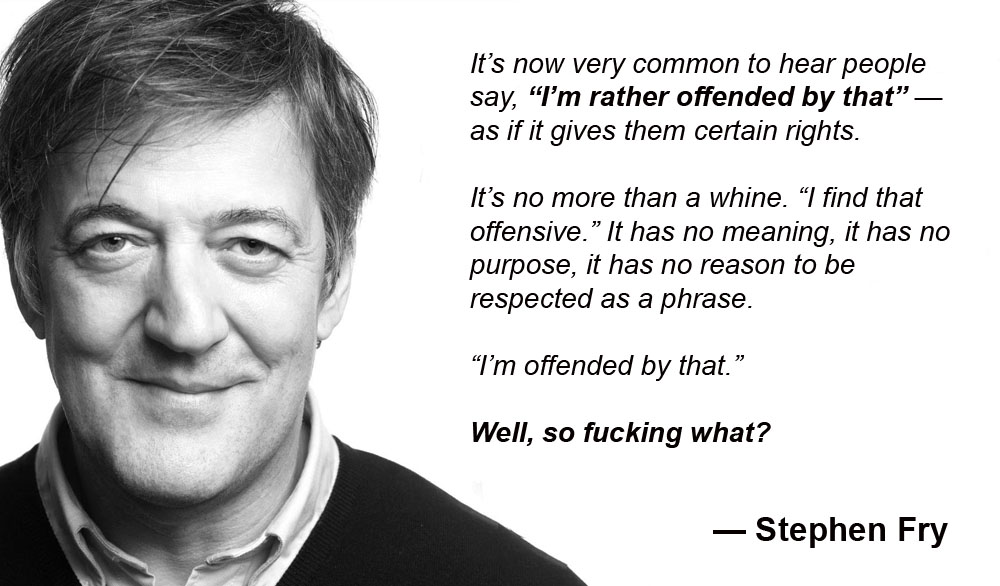
It’s often said that comedians can get away with saying anything as long as they’re funny. That said, Trevor Noah’s only crime was not being funny. And we should only punish him for that if it happens on The Daily Show.

